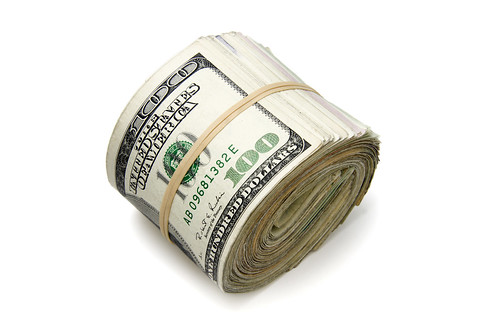I love working with first-time homebuyers and often there's things that us agents take for granted that they really just have never had to deal with before! That's okay! That's part of our job - to educate and inform! This past weekend, I had a lovely first-time couple who was getting geared up for an offer, when we went over the earnest money requirements and it was the first time they'd been told of this.
So I feel an explanation is in order, for all my first time buyers!

Earnest Money is:
- what secures the contract.
These funds are "held hostage" if you will, at the escrow account, to
ensure that you will do your best to fulfill the terms of the contract.
- in the form of a personal check,
most times, but can also be money order or cashier's
check. Most title companies will not handle cash however, so you
may need to get that turned over into a money order
instead.
- deposited within 5 business days
of the contract being accepted. So yes, the money needs to
actually be IN the bank account. :) While you have to bring the
check to make the offer, it cannot be put into the escrow account until
a fully ratified contract has been reached between buyer and seller.
- generally made out to a title company or 3rd party escrow account. Some real estate companies do have their own escrow holding accounts. These are regulated by the Feds and controlled strongly, so rest a little easier, even if you have to make that check out to a particular company.
- credited towards your funds
needed to close, at closing. So say you owed $3,000 at
closing, but had put down $500 at contract time, your final cash to
close would be $2500. If you owed less than what you put down as
earnest, there is generally a refund of the remainder.
- Now this varies, so I can't straight out answer that. TYPICALLY we see $500 until you
reach the $200,000 price range, where you'll start seeing more $1,000
requirements. Sometimes sellers have been burned before (or
certain banks!) and will request a certain amount to be sure of your
commitment. Occasionally one accepts less. The lowest I've had
accepted was $250.
- The amount can sometimes be
negotiated, depending on the situations.
- New Builds may require a larger
deposit, sometimes a percentage of the home price. Some
new areas have a set earnest money fee they require before holding the
lot for you, and some have both a lot hold earnest as well as a "start
construction" earnest that is put down in order to actually finalize
the plans and start the building process.
What if I Back Out?
- If you back out of a home because of provisions already noted in
the contract, such as the financing contingency, inspection
contingency, appraisal contingency, then in most circumstances, you
would be entitled to refund of your earnest money - less any expenses
the seller has incurred. HOWEVER, it has to be agreed in
writing between buyer and seller, so you will find a
recalcitrant seller who may not wish to release it. At that
point, it may have to go to Small Claims, though that does not happen
often. Generally if
reasonable effort was made to resolve the differences and they can't be
resolved, the earnest is released without problem.
- If you simply walk away from the
home for no explainable reason, a very flimsy reason, or just
change your mind, the seller could be
entitled to keep the earnest money as damages for having taken
the home off the open market waiting for you to
close. There is also a chance that they may involve
lawyers and sue for "Failure to Perform". Again, doesn't happen
often, but it's a risk you should be aware of when you sign a legally
binding contract like a home purchase.
All that sounds scary, doesn't it!
9 times out of 10, the transaction goes smoothly. You put your earnest money down, you do your loan, we negotiate inspection items if needed, the house appraises, and we move on to closing, where it's credited to you.
But that's what Earnest Money is - the deposit held hostage to show that you do intend in good faith to go through with the home purchase. In exchange, the seller cannot take any offers in place of yours and generally takes the home off the open market.
So Earnest Money is what secures the home for you until closing can occur.
If you have questions about a specific situation or just want to learn more about the steps to buying your first home, drop me an email or give me a call!

Comments(0)